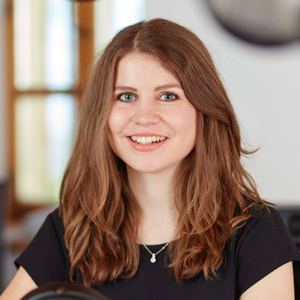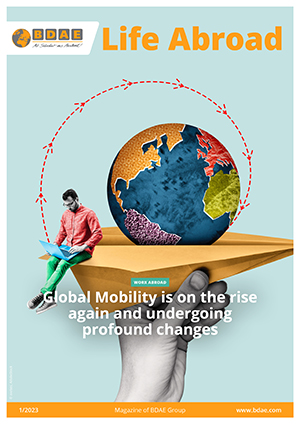How gender-specific medication works
Men are still considered as the standard in medicine, and therefore, medical care is predominantly tailored towards the male gender. This approach can have hazardous outcomes, particularly for women. Women experience different effects from medications compared to men, including antidepressants, anaesthetics, cardiovascular drugs, anti-inflammatory drugs, and sleeping pills. The list of medications that have varying effects on women and men is extensive.
One of those medication is zolpidem - the most popular sleeping pill in the USA. In 2013, more than 20 years after the drug was authorised, it was announced that women should actually take lower doses - and not be allowed to drive at all the next morning. In the new Apotheken Umschau podcast (in German) The Sex Gap – The Podcast on Gender Equitable Medicine, health journalist Kari Kungel and various experts, explores why research is predominantly oriented towards men - and the consequences that this can have.
A reason why fewer women take part in drug trials is because it is simpler to recruit men. This is because women who take part in these trials must not get pregnant and have to use two forms of birth control. As a result, women who are not willing to follow these requirements, as well as those who are already pregnant or breastfeeding, are usually not allowed to join the trials.
Gender-specific data often do not exist
Since 2004, it has been compulsory in Germany to conduct drug testing on women, however, a significant number of drugs that have already been approved prior to 2004 lack gender-specific data. This was revealed in the podcast where listeners were informed that despite the participation of women in these studies, the results are not always analyzed with a gender-specific approach.
Is it always necessary for women to take only half the medication as a precautionary measure? Not necessarily. "Talk to the person who prescribed the medicine for you," says Prof. Dr. Sabine Oertelt-Prigione, the holder of Germany's first professorship for gender-sensitive medicine at Bielefeld University. While it would be ideal to tailor treatments to individual needs, this remains a distant goal. Therefore, avoid making decisions on your own and always seek guidance from a healthcare provider.
At gesundheit-hören.de you can listen to all episodes and other podcasts from the audio range of Apotheken Umschau. The podcast can be subscribed to at Apple Podcasts and Spotify, among others, as well as everywhere else where podcasts are available.
The younger generation wants gender-equitable medicine
According to a survey (survey in German) conducted by BKK VBU, a health insurance company, there is a need for greater attention to be paid to gender in medical care, particularly among the younger generation. While many people are unaware that medical care is oriented towards the male body, those under 30 are more attuned to this issue and are calling for a reassessment. The survey, which sampled over 1,000 adults, reveals that younger individuals are more likely to demand gender-specific health care, with 36% of those under 30 thinking doctors treated men as the standard assuming a male orientation in medical care, compared to only 8% of those aged 60 and over.
The male body is still the standard of assessment
Most Germans, about 73% of men and 72% of women, think that medical care is the same for both sexes. But the truth is that medical care is mostly based on men's bodies. Doctors use men as the standard for things like treatments, emergency care, and studies. This can be a problem because it means that women's symptoms might not get noticed, like during a heart attack, or they might get more side effects from medicines. This is called the "gender data gap."
The younger generation is eager for change. 66% of them state that it is important or very important that medical care should care more about gender and the majority would like to see gender-specific care. Here, it is even more important to women (60 percent) than to men (47 percent).
"We have built up an expectation for which we need answers" says Andrea Galle, board member of BKK VBU. "It must therefore be our common concern to advance medical care that is better suited to both women and men by taking gender-specific characteristics into account. This also includes strengthening the female perspective in decision-making structures of the health system, which are mostly shaped by the male perspective. Everyone can benefit from this," finishes Andrea Galle.
 © Monkey Business, AdobeStock
© Monkey Business, AdobeStock
Example: contraception, an unequal distribution for women
An imbalance in supply can also be seen in the example of prescription contraceptives. If women want to do without artificial hormones in the form of the prescription contraceptive pill, there is a lack of alternatives. If they opt for the pill, they have to live with a variety of side effects, such as an increased risk of thrombosis and pulmonary embolism. Nevertheless, it is assumed that women can be expected to tolerate these side effects.
There is a problem with the availability of contraceptive options for women. If women don't want to use the pill, which has side effects like an increased risk of blood clots, they don't have many other options. Even though the pill can cause health problems, it's still expected that women should use it. "In order to create a care situation that is fair to both sexes here, too, more research interest and commitment on the part of politics is absolutely needed," Galle summarises.


